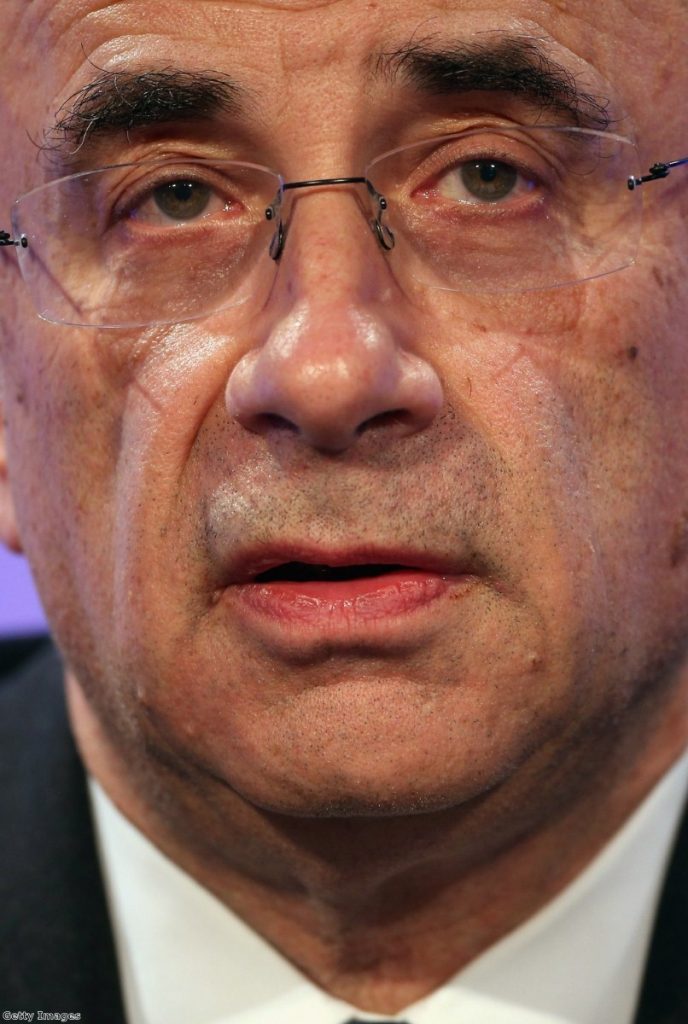High stakes poker: Cameron isolated as Clegg and Miliband team up over Leveson
The publication of the Leveson report created an extraordinary alliance against the prime minister today, as Nick Clegg reached across the aisle and teamed up with Ed Miliband against David Cameron.
Cameron now stands on one side of the divide with most of his MPs and the newspaper industry in opposing any legislation for a new press regulator. On the other side stand Clegg, Miliband and some other Tory MPs in demanding the Leveson report be implemented in full.
"It's obvious that the prime minister and I come at this from different angles," Clegg told the Commons, with withering understatement.
In unprecedented scenes, it became clear Cameron would not be speaking for the government when he responded to the Leveson report in the Commons. A short time afterwards, Clegg stood up to respond for the Liberal Democrats.


As he did so, Tory backbencher Peter Bone tried to adjourn the House to stop Clegg talking. He then said Clegg should resign for failing to support the prime minister.
Harriet Harman tried to get Clegg to say Cameron had committed to a "craven acceptance" of the status quo and surrendered to powerful press interests, but Clegg maintained a civilised composure throughout and refused to burn bridges with his coalition partner.
After the session, the three party leaders retreated to a private room for cross-party talks on the issue.
The divide is potentially extremely serious for Cameron. If Labour forces a vote, as it intends to, he would probably lose, leaving him looking like a prime minister without power.
Miliband's gamble to support statutory legislation is also hugely risky. The coverage he will receive tomorrow morning in the press will be damning, but if he forces through a change in the law despite opposition from the prime minister it could be seen as one of the major victories of his time as Labour leader.
Leveson stopped well short of suggesting full statutory regulation of the press and there is no question of a register of journalists.
He also kept the watchdog as a self-regulating body which is independent of the press and parliament.
But to encourage newspapers to take part, the judge proposed an arbitration arm which would need legislation to be recognised in the court system.
The benefit of the arm would be that it keeps libel and privacy cases short and cheap. Anyone who did not take part in it would face even higher costs, with Leveson proposing that claimants and defendants who refuse to take part in the regulator process pay litigation costs even if they win a court case.
The law would also validate a recognition body which ensures the regulator is fulfilling its duty to maintain independence from the press and parliament, keep up journalistic standards and protect individuals. That body would probably be Ofcom although concerns were raised about how it would fulfil this role in the Commons today.
Cameron was much more keen on other aspects of the report, which exonerated him from blame over appointing Jeremy Hunt to tackle the BSkyB deal.
It also found Vince Cable and Hunt to have behaved without bias over the case, although it did criticise the latter for using his special adviser, Adam Smith, as a conduit with News International.
The behaviour of the police was also criticised, although Leveson said there was no widespread corruption in the force. He did recommend that 'off-the-record' briefings between journalists and police officials were stopped.
John Yates, former assistant commissioner at Scotland Yard, came in for particular criticism for his decision to not reinvestigate phone-hacking and making an announcement to that effect on camera just hours after new revelations came to light.

